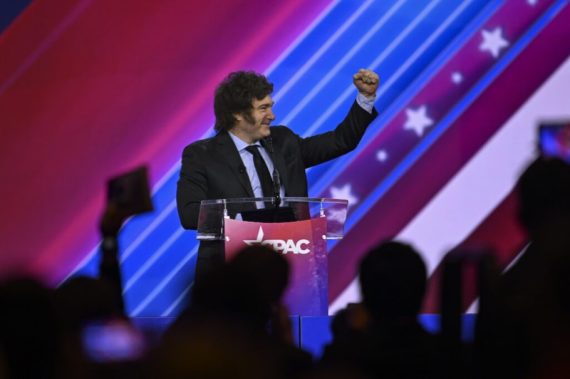I
n a bid to quell escalating tensions, Argentina and Colombia have reached an agreement to defuse a diplomatic row sparked by inflammatory remarks exchanged between their respective presidents.
The dispute erupted following a vitriolic attack by right-wing Argentine President Javier Milei on his leftist Colombian counterpart, Gustavo Petro, prompting Colombia to order the expulsion of Argentine diplomats.
In a joint statement issued late Sunday, the foreign ministries of both countries affirmed their commitment to resolving differences and fortifying bilateral relations.
Colombia announced the return of its ambassador to Buenos Aires, while Argentina pledged a visit by its foreign minister to Bogota. Additionally, Colombia retracted its threat to expel Argentine diplomats, indicating approval of Argentina’s newly appointed ambassador.
President Milei and Petro friction
The friction between President Milei and President Petro has been characterized by heated exchanges, with past confrontations revolving around ideological differences and personal attacks.
Milei, known for his outspoken libertarian views, labeled Petro a “terrorist murderer,” citing his involvement with a leftist guerrilla group. In response, Petro accused Milei of exacerbating poverty in Argentina through his libertarian policies.
The recent escalation underscores the deep-seated ideological divisions between Milei and Petro, who represent starkly contrasting political ideologies.
Petro, championing leftist policies aimed at addressing poverty and inequality, stands in stark contrast to Milei’s libertarian agenda, which advocates for reduced government intervention and fiscal austerity.
Recommended
Ideological divergence?
Despite their ideological divergence, both leaders ascended to power on promises of transformative change, tapping into widespread discontent with traditional political establishments perceived as ineffectual in addressing societal challenges.
As Argentina and Colombia move to mend diplomatic fences, the resolution of this spat underscores the importance of constructive dialogue and diplomatic engagement in navigating ideological differences and fostering regional cooperation.
With both nations facing pressing socio-economic challenges, the imperative for collaboration and mutual understanding remains paramount in ensuring stability and prosperity in the region.
Source: The Associated Press





